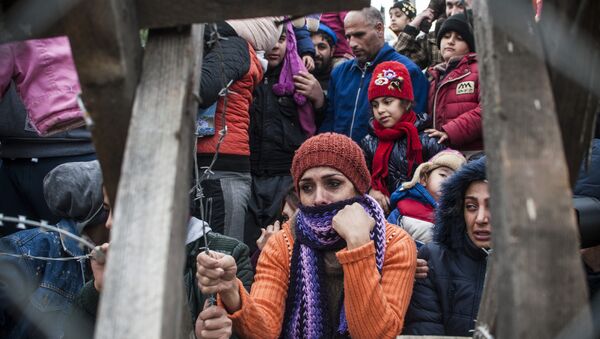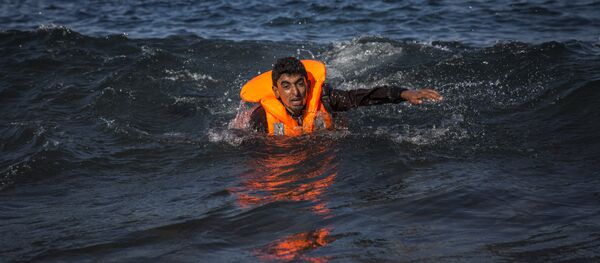According to German media, in the first 11 months of 2018, Germany deported 8,658 asylum seekers to other countries. Sputnik discussed this with Riccardo Cascioli, political scientist and Editor in Chief of La Nuova Bussola Quotidiana.
Sputnik: How alarming is this development for Rome?
Riccardo Cascioli: It doesn't seem there is much worry in Rome. The sentence of course is very welcome in Germany, it puts a certain political pressure on countries on the borders of the EU, but from a pragmatical point of view it shouldn't have an immediate effect on Italy, because to implement the sentence you need an agreement between Germany and Italy. That is: Germany can't send asylum-seekers back to Italy without an agreement between the two governments. And at the moment, there is no agreement.
READ MORE:Berlin is Eligible to Deport Refugees to Poor EU Countries — ECJ
Sputnik: How likely is the court’s decision to prompt an inflow of migrants to Italy and other nations of the bloc?
Riccardo Cascioli: Just because of what I have just said, it is unlikely, a return of migrants in Italy, at least in the short term. More problems are possible for Spain, that instead has an agreement with Germany, and I don't know if other countries have any sort of agreement with Germany. Instead it is much more likely, a more strict control of the borders in countries of central and northern Europe, very often the intended destination of the asylum-seekers. In this case, it is possible; we will see in the future more humanitarian problems at the borders of among the internal countries of Europe (Austria, Germany, France, and so on).
Sputnik: What steps will Italy’s right-wing government undertake in regard to this ruling?
Riccardo Cascioli: The main concern of the Italian government remains to stop the inflow of migrants from North Africa, also considering the continuous challenge mounted by international NGOs and leftist parties. But the sentence also underlines the need to re-negotiate the Dublin Treaty. The rule that obliges the irregular immigrants to be accepted in the first country of Europe where they arrive is clearly unfair and unsustainable, given the present situation. But the refusal of other EU countries to review this treaty clearly states that while everybody blames Italian government, in fact nobody in Europe wants irregular immigrants.
READ MORE:German Finance Minister Under Fire for Cuts on Migrant Spending
Sputnik: How much could this decision undermine the bloc nations’ trust in the EU and its institutions?
Riccardo Cascioli: The sentence would be positive if provokes a widespread awareness of the need to change the Dublin Treaty. But I doubt this will happen. It is more likely a rise in tension between EU institutions and countries penalised by the Dublin Treaty and this immigrationist policy of the EU.
The views expressed in this article are those of the speaker and do not necessarily reflect those of Sputnik.





